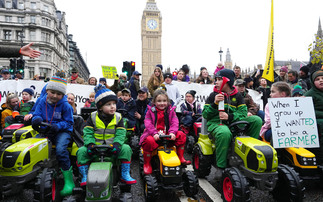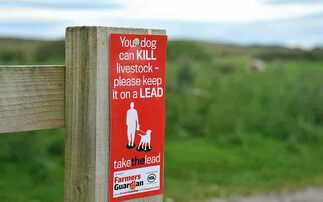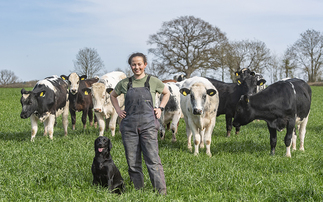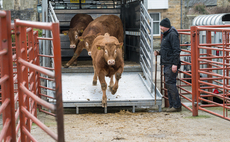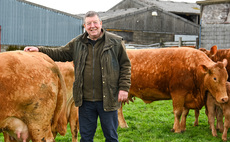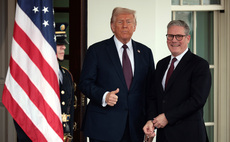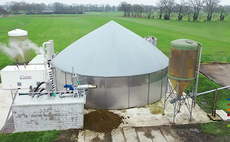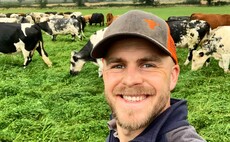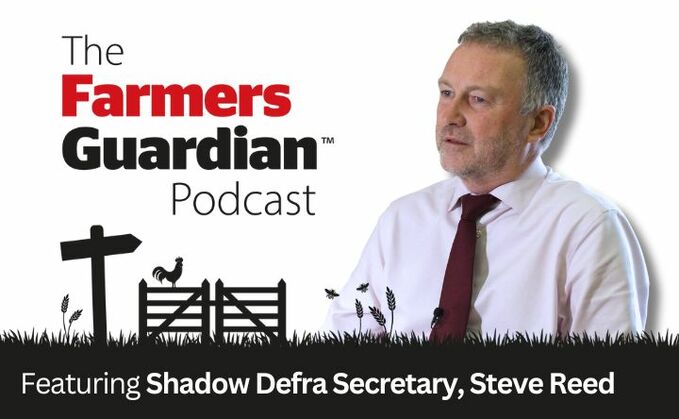
The Labour party had lost connection with the countryside at the previous election, failing to give rural and farming communities the respect they deserve – something the Shadow Defra Secretary openly admits to.
Speaking to Farmers Guardian, Steve Reed said he hoped to turn that around before this year's General Election and was determined to ‘win the connection back'. Mr Reed said he was on a mission to ‘give farmers their future back' – a bold statement which promises a lot to the industry.
Labour party
But the question remains as to whether this Labour Party has got a detailed enough plan to get that all-important rural vote. With some record swings in rural by-election seats over the past few months, it has not gone unnoticed that the Labour Party has started to ‘get a hearing' in the countryside - something it has not experienced for a couple of decades.
See also: Government limits the amount of land farmers can take out of food production under SFI
But Mr Reed stressed the job ‘was not done yet'. When probed on what would be the minimum number of rural seats he would want in the next General Election, there was a definite reluctance to give an exact figure. Instead, he wished ‘for a majority to be able to form a Government'.
General election
"At the last election, we had only three MPs elected in rural seats. But in 1997 and 2001, we had a majority of rural seats," Mr Reed said, adding that a Labour Government would listen, respect and work in partnership with farmers and producers, ensuring they played a valued part in decision-making.
"We have a package which is going to put money directly into the pockets and bank accounts of farmers and producers, whereas this Government has undermined them."
See also: Red Tractor axes Greener Farms Commitment module
When asked what the plan was to get the farming industry back on track, Mr Reed kept on script and did not deviate from his party's five-point plan, which included renegotiating a veterinary agreement with the EU to help remove trade barriers for UK farmers; to focus on public procurement following the likes of France and Denmark to get more local food in schools and hospitals; the introduction of a public sector sustainable energy company - GB Energy - to reduce farmers' bills; cutting planning from years to months; and the creation of a flood-resilient taskforce.
Budget
On the agricultural budget, Mr Reed failed to give a concrete answer. Instead, he pointed out that the party's so called ‘new deal' was already fully funded. He said: "I have outlined an entire new deal for farmers which is not going to cost anything more, but will shovel in total billions of pounds into the bank accounts and pockets of our producers."
Throughout the interview, Mr Reed took a noticeably careful approach to his answers, not wanting to give too much detail away – perhaps learnings from his party's previous campaign mistakes. Mr Reed's go-to defence, when asked about improving uptake on agri-environment schemes, dealing with tenant issues and land being taken back to hand, was to criticise the Government's failure to publish an impact assessment.
He said a Labour Government would commit to publishing one. Mr Reed added: "I will publish it because I have always thought the more open you are with your data, the more eyes there are on a problem and the more likely you are to resolve it."
Tenant farmers
At a troubling time for parts of the tenanted sector, with claims of farmers being ‘turfed off', Mr Reed said he understood the worries, and despite hearing anecdotally the issues, he would need to see the impact data.
See also: Tractors head to Westminster looking to 'sound the alarm' on British farming
When questioned if he was in favour of a Tenant Farming Commissioner, he said in principle it ‘sounded sensible', but that he needed ‘time to work it out'. As a lot of these issues concerned the management of land, Mr Reed said he was confident a land use framework could make a difference.
He said: "We have a limited amount of land for the size of population we have here. And there are a lot of things we want to do with it.
"Food production obviously is an absolute priority, but so is clean energy generation.
"There would be a framework which decisions could be judged against so we can make sure we have put enough land in use for food production to meet the requirements we have.
"The same for energy, the same for housing and the other purposes we have. I would much rather have a strategy, than take ad-hoc decisions one by one."
Wales
When asked about Welsh Labour's proposed Sustainable Farming Scheme, Mr Reed acknowledged there was a ‘clear problem', adding ‘we have no intention of copying what has happened in Wales' and that proposals ‘must make sure farmers can do what farmers do best and that is food production'.
See also: How to control the bTB risk factors
On the subject of whether a tree planting requirement, which has again proved unpopular in Wales, would be introduced across England under Labour, Mr Reed said: "We have not published our manifesto yet and we do not actually have a target for tree planting."
But he said it was something which ‘needed to be negotiated' with Government and the interests of different groups which care about the land.
Bovine Tuberculosis
Tackling bovine TB and the badger cull was another area of concern for many farmers under a Labour Government. Despite being challenged on further delays to the vaccine and whether countries would accept cattle with the vaccine, Mr Reed said he was going to stick to the ‘multi-pronged approach' in the Godfray review and would ‘focus down' on getting the vaccine over the line.
He said: "There is not scientific evidence that the badger cull is effective. Godfray proposes that it should be phased out over time.
"But what we are not going to do is come in and end the existing licences."
Mr Reed has now been in this role for more than six months and said the passion and care for what farmers do is what ‘really sings out'. He added if Labour got into Number 10 and he was asked, the Defra Secretary was the job he would want.













